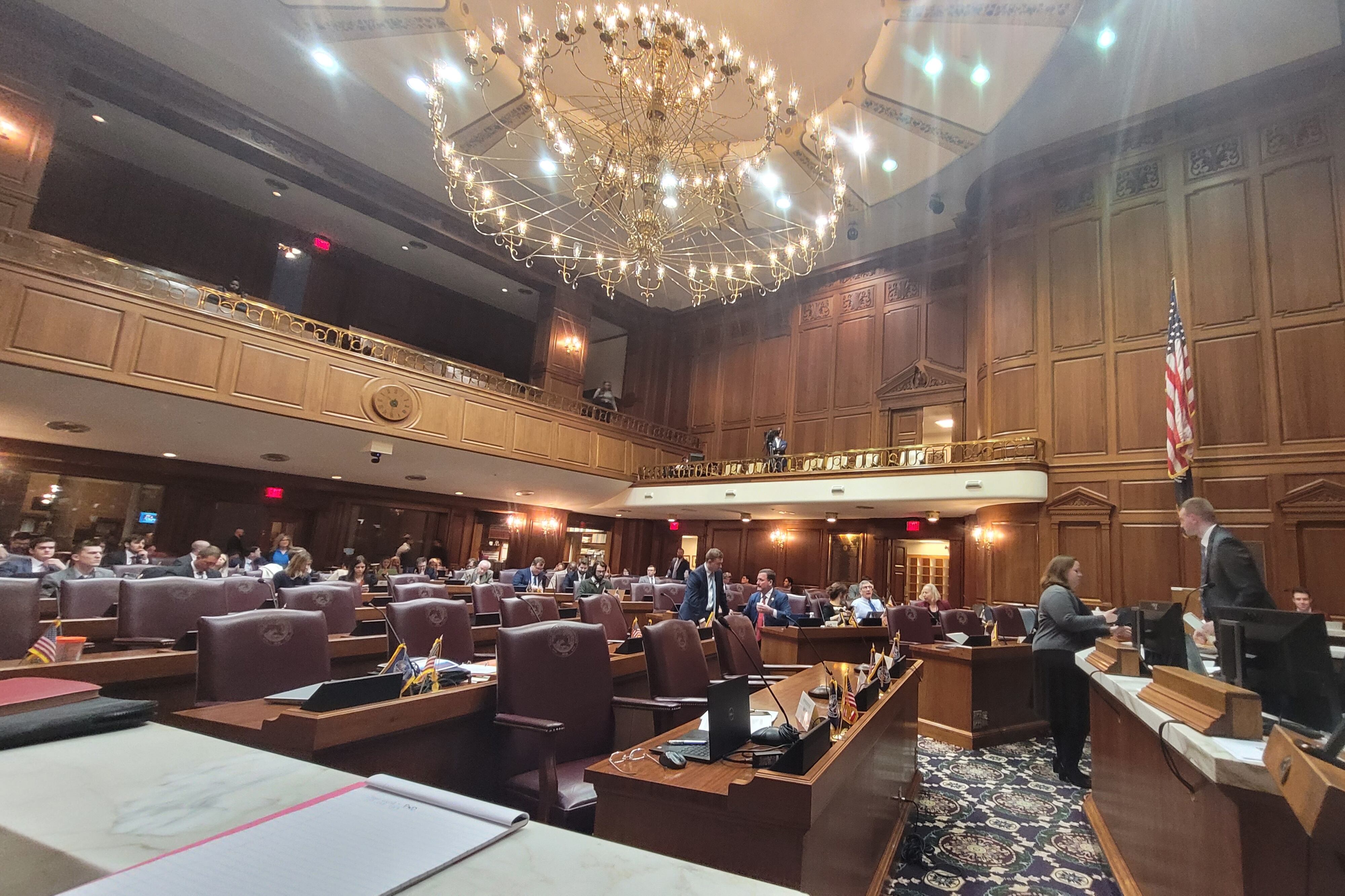Indiana’s 2023 legislative session is under way, and state legislators have introduced more than 100 new education bills and bills impacting schools and students. For the latest Indiana education news, sign up for Chalkbeat Indiana’s free newsletter here.
Indiana lawmakers will again consider a bill to ban certain topics related to race and racism from classroom discussions, after similar legislation last year stirred national backlash and ultimately failed to pass.
This year’s bill, introduced by GOP Rep. Shane Lindauer, includes a list of seven concepts that educators would be forbidden from promoting, including that individuals are inherently consciously or unconsciously racist or sexist, or that they should feel “discomfort, guilt, or anguish” on the basis of their race or sex.
House Bill 1338 also reaches into the higher education sphere by prohibiting state educational institutions from requiring students to take gender or sexual diversity training, or racial and sexual bias training.
The bill is another indication that some members of the GOP supermajority want to tackle how schools address hot-button social issues this session, despite some lawmakers’ calls to focus on school funding in the biennial budget and not divisive cultural topics.
Reflecting broader political disputes, Republican lawmakers have also filed a series of bills focused on minors’ gender identity, including two that would prohibit the teaching of gender identity and sexual orientation in schools. Other bills would compel educators to report if a student requests to change their name, pronouns, attire, or what restroom they use.
But so far, conversations about expanding school choice and voucher-like programs have dominated the first meetings of the House and Senate education committees.
Lindauer’s bill specifies that parents must be notified if a survey that their student takes would be shared with a school district’s third-party vendor.
His bill has been referred to the House Education Committee.
The bill has a much narrower focus than last year’s legislation, which in an early draft would have created curriculum review committees and required teachers to post their learning material online. The language in Lindauer’s bill also differs slightly from last year’s proposal, which included a broader list of protected characteristics, like ethnicity, religion, color, and national origin.
Last year’s House bill, along with its companion in the Senate, met with strong opposition from a coalition of teachers, parents, and community groups, who said the bills would silence conversations about history in classrooms.
Supporters of the legislation from last year said the proposals gave parents more control over what their children were learning via the curriculum portals.
Indiana’s contentious debate in 2022 was part of the national furor over whether K-12 schools were teaching critical race theory, a graduate-level legal theory focused on institutional racial bias.
The bill ultimately died in the Senate after passing the House.
Aleksandra Appleton covers Indiana education policy and writes about K-12 schools across the state. Contact her at aappleton@chalkbeat.org.







